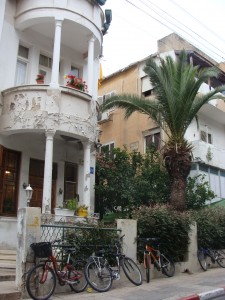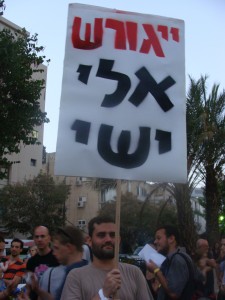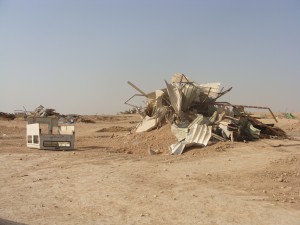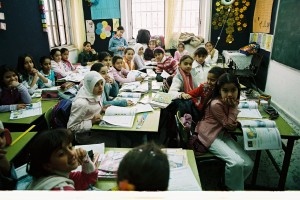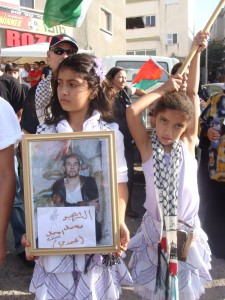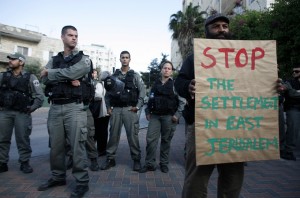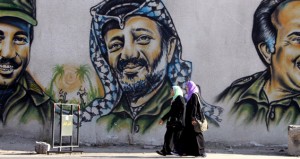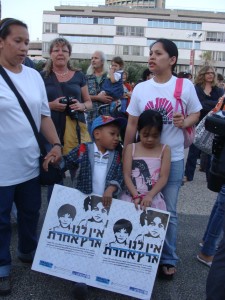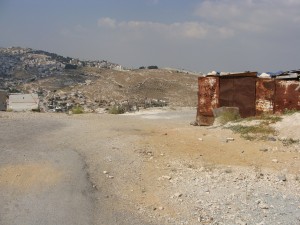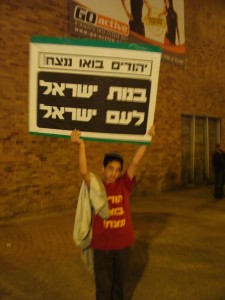 Al Jazeera English, January 9, 2011
Al Jazeera English, January 9, 2011
On a recent Monday, over 200 Jewish Israelis rallied in Bat Yam, a suburb of Tel Aviv under the banner of Keep Bat Yam Jewish. The demonstrators, most of whom were religious and strikingly young, were there to protest romantic relationships between Arabs and Jews, particularly those between Arab men and Jewish women.
I didn’t go as a reporter. I went to bear witness. I’d also volunteered to translate for a colleague, a Palestinian man, who doesn’t speak Hebrew.
We stood to the side. Demonstrators, mistaking us for supporters, handed us leaflets shameless propaganda. I read them aloud to my colleague, even though I was ashamed to repeat the words I held in my hands: The Arabs are taking control of Bat Yam, buying and renting apartments from Jews, taking and ruining girls from Bat Yam! 15,000 Jewish girls have been taken to Arab villages! Guard our city—we want a Jewish Bat Yam!
The rally came in the wake of a religious edict forbidding Jews from leasing or selling homes or land to Arabs. The proclamation was signed by fifty rabbis, many of whom are state employees, before it was announced publicly several weeks ago. Another 250 have joined since then.
